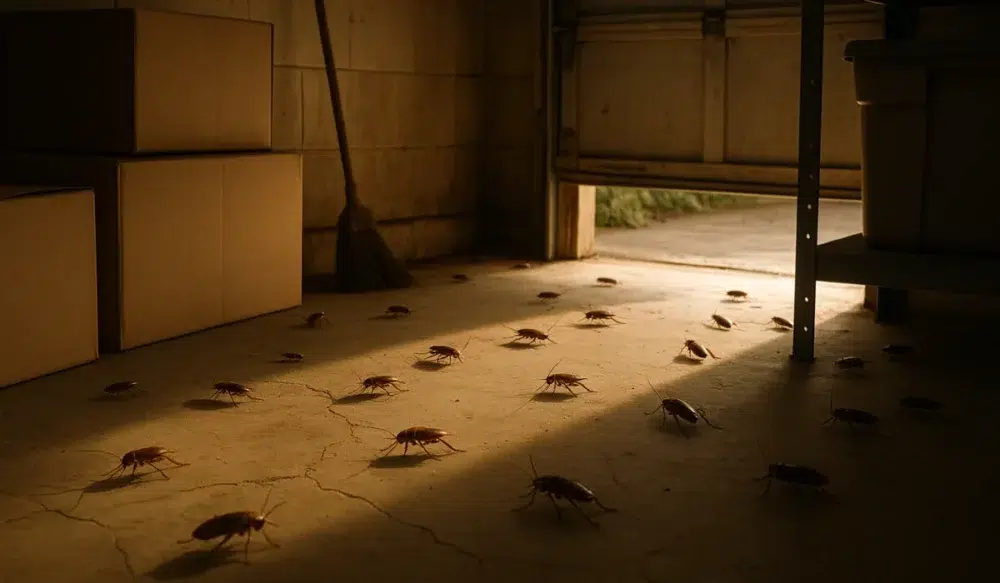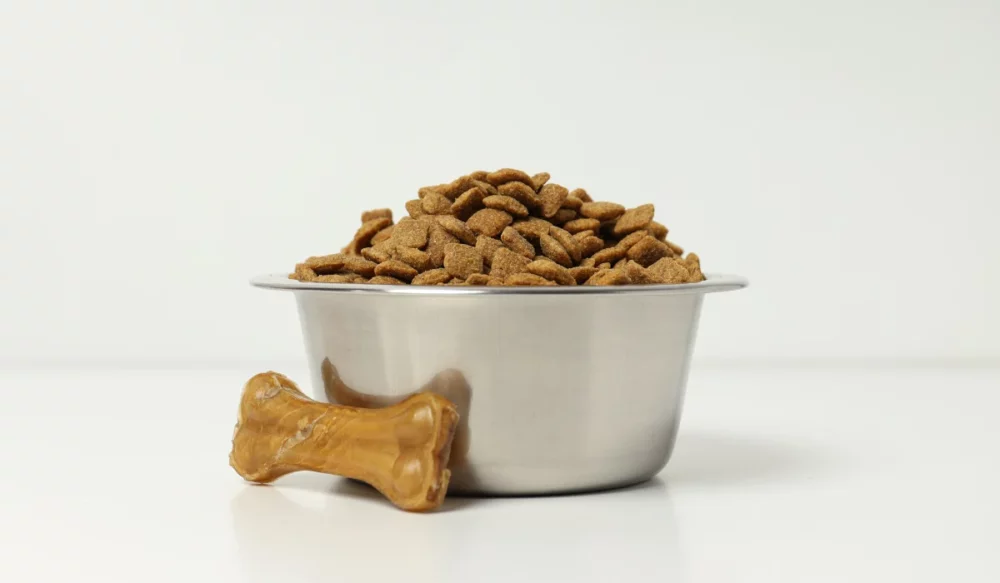With their cooing calls and graceful flight, pigeons may be charming to some, but they can quickly become a nuisance when they invade homes, businesses, and public spaces. These avian pests are notorious for causing damage to buildings, spreading diseases, and leaving unsightly droppings in their wake. Effective pigeon control is essential to protecting properties and maintaining a healthy environment.
In this comprehensive guide, we’ll explore the best strategies for preventing and controlling pigeon infestations. Whether you’re a homeowner dealing with nesting pigeons on your roof, a business owner facing commercial property damage, or a concerned citizen seeking pigeon or any other urban area, this resource will provide valuable insights and expert advice.
Pigeons have adapted remarkably well to urban environments, making them a common sight in cities across the globe. However, their presence brings significant challenges, necessitating proactive measures to address the issue. From effective deterrents to humane exclusion methods, this guide will cover a range of techniques for pest control in Phoenix to keep pigeons at bay and prevent the associated problems.
Pigeon control requires a multifaceted approach, taking into account the property’s specific characteristics and the behavior of these persistent birds. Our expert strategies will address the root causes of pigeon infestations and help you implement proactive measures to discourage their presence. By understanding pigeon behavior, identifying potential attractants, and utilizing appropriate deterrents, you can effectively protect your property against these pests.
Furthermore, this guide will delve into the importance of seeking professional assistance for comprehensive pigeon pest control. Trained pest control specialists possess the knowledge, experience, and access to specialized tools and methods necessary for successful long-term pigeon management.
Whether you’re seeking ways to prevent pigeons from roosting on ledges, protect your crops from feeding pigeons, or implement bird control measures in a public space, this guide will equip you with the information you need. By implementing the expert strategies outlined here, you can reclaim your property from these persistent avian pests and restore peace and cleanliness to your surroundings.
Pigeon Behavior And Traits: Key Indicators For Identification
Understanding the behavior and traits of pigeons is essential for effective identification and control of these avian pests. By familiarizing yourself with their habits, you can implement targeted pigeon control methods to address infestations and prevent future problems. In this section, we’ll explore the key indicators that can help you and develop appropriate control strategies.
- Roosting Behavior: Pigeons usually roost and build their nests in elevated areas, such as ledges, roofs, and rafters. Their preference for higher structures provides a vantage point to detect potential threats. If you notice large numbers of pigeons gathering or roosting on your property, it is a clear indication of an infestation that requires control measures.
- Nesting Habits: Pigeons build nests using twigs, leaves, and other debris, often in concealed locations such as building crevices or tree branches. Their nests can be messy and unsightly, and they may reuse them for multiple breeding cycles. Keep an eye out for nests around your property, as they clearly indicate pigeon activity.
- Feeding Patterns: Pigeons are opportunistic feeders, and their diet primarily consists of grains, seeds, and discarded food. You’ll commonly find them scavenging around outdoor dining areas, garbage bins, and agricultural fields. If you observe pigeons frequently congregating near food sources or causing damage to crops, it’s essential to take action to control them and minimize their impact.
- Flocking Behavior: Pigeons are social birds that prefer to gather in large flocks. If you notice a significant number of pigeons moving together or flying in a synchronized manner, it indicates the presence of a larger population in the vicinity. Flocking behavior often contributes to increased noise, property damage, and health risks associated with pigeon infestations.
- Droppings and Damage: Pigeon droppings can cause extensive damage to buildings, vehicles, and public spaces. Their acidic droppings not only deface surfaces but can also corrode metal, deteriorate paint, and block gutters. The accumulation of droppings can create unhygienic conditions and increase the risk of diseases. If you come across large amounts of pigeon droppings or notice signs of structural damage, it’s important to implement effective pigeon control methods promptly.
To control pigeons effectively, a combination of proactive and reactive measures is necessary. Here are some key pigeon control methods that can help mitigate infestations:
- Deterrents: Installing physical deterrents such as bird spikes, netting, and wire barriers can make roosting and nesting areas inaccessible to pigeons. These deterrents create an inhospitable environment for pigeons, discouraging them from settling on your property.
- Scare Tactics: Utilizing scare tactics, such as visual deterrents like reflective surfaces or predator decoys, can startle pigeons and disrupt their roosting patterns. Pigeons are intelligent creatures, so regularly changing the placement and type of scare tactics is essential to maintain their effectiveness.
- Habitat Modification: Eliminating food and water sources is an effective way to deter pigeons. Properly sealing garbage bins, minimizing spillage, and removing standing water can discourage pigeons from frequenting an area. Additionally, trimming trees and shrubs near buildings can reduce nesting sites.
In cases of severe infestations or persistent pigeon problems, seeking the assistance of professional pest control services is recommended. Pest control experts possess the knowledge, experience, and access to specialized pigeon control methods, ensuring effective and long-lasting solutions.
Understanding The Pigeon Problem: Causes And Consequences
The presence of pigeons can pose numerous challenges, making it crucial to comprehend the causes and consequences of these pests. By understanding the factors contributing to pigeon infestations, we can learn how to control pigeons and mitigate the associated issues. Next are some of the causes behind the proliferation of pigeons and the potential consequences if left unaddressed.
Abundant Food Sources:
One of the primary causes of pigeon infestations is the abundance of food sources in urban and suburban areas. Pigeons are opportunistic feeders and thrive in environments where they can easily access discarded food, grains, and seeds. Outdoor dining areas, open garbage bins, and agricultural fields provide ample sustenance for these birds, leading to increased populations.
Shelter Availability:
Pigeons are highly adaptable and have successfully adapted to urban environments by utilizing buildings, ledges, and other structures as roosting and nesting sites. The availability of suitable shelter options, such as building ledges, unused attics, and tree branches, provides pigeons with safe and secure locations to breed and roost.
Lack of Natural Predators:
Pigeons lack natural predators in urban settings, allowing their populations to grow unchecked. The absence of significant predator pressure enables pigeons to reproduce rapidly and establish large flocks, exacerbating the pigeon problem.
There will undoubtedly be consequences if pigeon control is left unchecked. The following paragraphs cover some of the results of a pigeon infestation.
Property Damage:
Pigeons can cause significant damage to buildings, vehicles, and infrastructure. Their acidic droppings deface surfaces, corrode metals, and deteriorate paintwork. Moreover, the accumulation of droppings can clog gutters and drainage systems, leading to water damage and structural issues.
Health Risks:
Pigeon droppings pose health risks to humans. The accumulation of droppings can harbor fungi, bacteria, and parasites, potentially causing respiratory issues and diseases such as histoplasmosis and salmonellosis. Inhalation of dried pigeon droppings can also trigger allergic reactions in susceptible individuals.
Environmental Impact:
Pigeon infestations can have adverse effects on the environment. Large amounts of pigeon droppings can contaminate soil and water sources, affecting local ecosystems. The presence of pigeons in agricultural areas can result in crop damage, leading to economic losses for farmers.
In conclusion, understanding the causes and consequences of pigeon infestations is crucial for implementing effective control strategies. By addressing the factors contributing to pigeon proliferation and utilizing effective control methods such as scare tactics, deterrents, and habitat modification, you can significantly reduce the number of pigeons in a place. In cases of severe infestations or persistent pigeon problems, it’s best to seek help from professional pest control services such as those at Green Home Pest Control.
Our pest control experts possess the knowledge and experience to effectively implement a range of . They can provide long-term solutions tailored to specific situations. Next up, let’s take a closer look at certain pigeon magnets and why you might have more pigeons on your property than other homes or businesses.
Identifying Pigeon Magnets: Factors That Draw Pigeons To Properties
To effectively implement pigeon infestation control, let’s first start by identifying the factors that attract pigeons to properties in the first place. By understanding the elements that act as pigeon magnets, property owners can take proactive measures to prevent infestations and minimize the risk of recurring pigeon problems. Let’s look at some of the key factors that draw pigeons to properties and some effective strategies to address them.
Food Sources:
The availability of food is a significant factor that attracts pigeons to properties. Pigeons are opportunistic feeders attracted to areas with a readily accessible food supply. Outdoor dining areas, open garbage bins, and improperly stored pet food are all potential food sources that can entice pigeons. In order to deter pigeons, it is crucial to minimize food availability by ensuring you properly seal garbage bins, clean up food spills promptly, and store pet food securely.
Water Sources:
Pigeons require a consistent water supply, especially in hot and dry climates. Properties with easily accessible water sources, such as open water containers, birdbaths, and swimming pools, can attract pigeons seeking hydration. If you want to discourage pigeons, it is important to eliminate standing water and ensure water containers are tightly covered or replaced with birdbaths specifically designed to deter pigeons.
Roosting and Nesting Sites:
Pigeons seek sheltered roosting and nesting sites to protect themselves and their offspring. Buildings with ledges, eaves, and gaps provide ideal locations for pigeons to settle. Additionally, overgrown vegetation, tree branches close to structures, and abandoned structures can also serve as attractive roosting and nesting sites. To deter pigeons, seal off access to potential roosting and nesting areas by using physical barriers like bird spikes or netting. Regularly trimming vegetation near buildings and keeping structures well-maintained can also discourage pigeon habitation.
Lack of Predator Presence:
Pigeons thrive in environments where they do not face significant pressure from predators. The absence of natural predators allows pigeon populations to grow unchecked. Installing visual deterrents, such as predator decoys or reflective surfaces, can create the illusion of predators, which may dissuade pigeons from landing in the area.
Unsecured Waste Management:
Improper waste management practices can attract pigeons by providing them with a constant food source. Open garbage bins, overflowing dumpsters, and littered areas are all magnets for pigeons. Property owners should implement proper waste management protocols, including securing garbage bins, regularly emptying dumpsters, and maintaining cleanliness in and around the property.
Previous Pigeon Infestations:
Once a property has experienced a pigeon infestation, it becomes more susceptible to future infestations. Pigeons leave behind scent markings that attract other pigeons to the area. If a property has a history of pigeon problems, it is crucial to take proactive measures to prevent them from returning.
You can implement effective control strategies by identifying the factors that draw pigeons to properties. Try some of the following methods to from your property:
- Maintain Cleanliness: Regularly clean and sanitize outdoor areas, including outdoor dining spaces, to minimize food availability and eliminate odors that attract pigeons.
- Implement Physical Deterrents: Install bird spikes, netting, or wire barriers in areas where pigeons roost or nest to make those areas inaccessible. These physical deterrents create barriers that discourage pigeons from settling on buildings and structures.
- Use Scare Tactics: Rotate and use visual deterrents, such as predator decoys, reflective surfaces, or motion-activated devices, to startle and deter pigeons from roosting or nesting.
Finally, let’s look at some benefits and solutions of professional pigeon control. At times, we cannot handle certain pest problems on our own. That’s when you call a professional like Green Home Pest Control.
The Importance of Professional Pigeon Control: Benefits And Solutions
When facing a persistent pigeon problem, seeking the assistance of professional pigeon control services becomes crucial. Professional pest control companies like Green Home Pest Control offer specialized knowledge, expertise, and effective solutions to address pigeon infestations. In this section, we’ll explore the importance of professional pigeon control and discuss the benefits and solutions we can provide at Green Home Pest Control.
Knowledge and Expertise:
Our experts at Green Home Pest Control have in-depth knowledge of pigeon behavior, biology, and habits. We understand the factors that contribute to pigeon infestations and can accurately identify the extent of the problem. With our expertise, we can develop tailored solutions to control pigeon populations and prevent future infestations effectively.
Comprehensive Assessment:
Professional pigeon control services begin with a comprehensive assessment of the property. We inspect the premises to identify pigeon roosting and nesting sites, potential entry points, and any factors that attract pigeons. This thorough assessment allows us to develop a customized pigeon control plan that addresses the specific needs of your property.
Effective Control Methods:
Professional pest control companies like Green Home Pest Control employ a range of effective pigeon control methods. We utilize physical deterrents like bird spikes, netting, and wire barriers to make roosting and nesting areas inaccessible to pigeons. Additionally, we may implement scare tactics, habitat modification, and bird control devices to deter pigeons from the property. These proven methods help control pigeon populations and minimize damage.
Humane Solutions:
Professional pigeon control services prioritize humane methods to manage pigeon infestations. We understand the importance of ethical and environmentally friendly practices. By utilizing non-lethal techniques and deterrents, we ensure that pigeons are discouraged from roosting without causing harm to the birds or the environment.
Long-Term Solutions:
One of the key advantages of professional pigeon control is our ability to provide long-term solutions. Rather than temporary fixes, we focus on sustainable control strategies. Pest control experts at Green Home Pest Control address the root causes of pigeon infestations, such as eliminating food and water sources, sealing entry points, and modifying habitats. By targeting these underlying factors, we create an environment that is less attractive to pigeons, reducing the likelihood of future infestations.
Health and Safety:
Pigeon infestations can pose health risks to humans due to the diseases and allergens associated with their droppings. Professional pigeon control services prioritize the health and safety of occupants by implementing measures to remove droppings, sanitize affected areas, and minimize the risk of disease transmission. We also ensure proper disposal of waste materials to maintain a clean and hygienic environment.
Peace of Mind:
Engaging professional pigeon control services offers peace of mind for property owners. By entrusting the task to experts at Green Home Pest Control, property owners can be confident that we will effectively address the pigeon problem. We have the experience, equipment, and knowledge to tackle pigeon infestations, allowing you to focus on other priorities.
In conclusion, professional pigeon control services at Green Home Pest Control play a vital role in effectively managing and . Our knowledge, skill, and comprehensive solutions provide numerous benefits, including targeted control methods, humane practices, long-term solutions, and enhanced health and safety. By enlisting in Green Home Pest Control, you can ensure efficient and successful pigeon control.
Request Your Free Estimate Today
Complete the form below to request your no obligation estimate.



